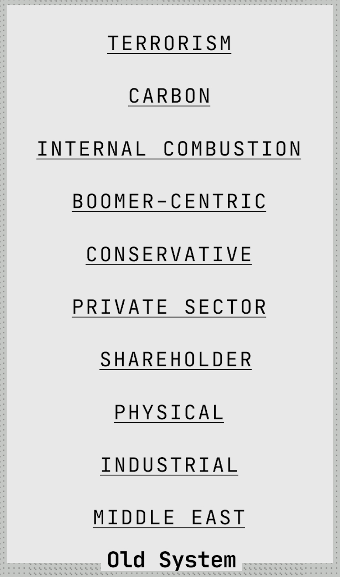April 18, 2025
Learning
Through the eyes of 2100: What a future historian might see in today’s world

Trump may make America great again — just not in the way he had intended.
Peter Leyden has posed an intriguing thought experiment: What would a historian in the year 2100 consider most significant about our time?
He suggests that a university professor teaching American history in 2100—approximately 80 years from now—would interpret the early 21st century much as a 2025 professor might teach about the pivotal postwar era beginning in 1945.
Like that seminal period, America today stands at a transformative crossroads—an inflection point future historians may see as marking the end of one era and the dawn of another. Just as the postwar years reshaped the nation's global role and domestic priorities, the early 2000s are witnessing the erosion of two foundational pillars of the postwar order: Pax Americana and the bureaucratic welfare state. Once critical to global stability and national cohesion, these systems have grown structurally fragile and fiscally unsustainable.
Ballooning deficits, an aging population, and an $850 billion defense budget highlight a nation buckling under the weight of outdated commitments. These aren’t issues that can be solved with marginal policy tweaks. They call for sweeping reform—bold, systemic change that neither Democrats nor traditional Republicans have seriously attempted.
In this light, Leyden frames Donald Trump’s presidency as historically significant—not because of visionary leadership or institutional design, but because of his role as a political demolitionist. Trump, he argues, acted as a wrecking ball aimed at decaying institutions. While Leyden largely sidesteps the cruelty and divisiveness of Trump’s rhetoric and policies, he maintains that Trump destabilized the existing order in a way few others could. Populist movements like his rarely build enduring systems, but they often clear the ground for what comes next.
History, Leyden observes, shows that eras of destruction often precede periods of renewal. The Progressive Era followed the Gilded Age; the New Deal emerged from the Great Depression. Likewise, the current dismantling may pave the way for a new progressive majority—one capable of building next-generation institutions suited to the demands of a rapidly changing world.
If such renewal arrives, Leyden argues, it won’t be Trump or his allies leading it. Like Herbert Hoover before him, Trump may be remembered less for solutions than for the suffering his leadership amplified. Yet, paradoxically, that disruption may be what forces the country to face its failures and initiate real change.
In this view, America may become “great” not by clinging to a mythologized past, but by reckoning with its broken systems and daring to imagine something better. The true legacy of this moment may lie not in the chaos it caused—but in the future it helped make possible.
ARTICLE:What a Historian in 2100 Might Say About Trump’s America




